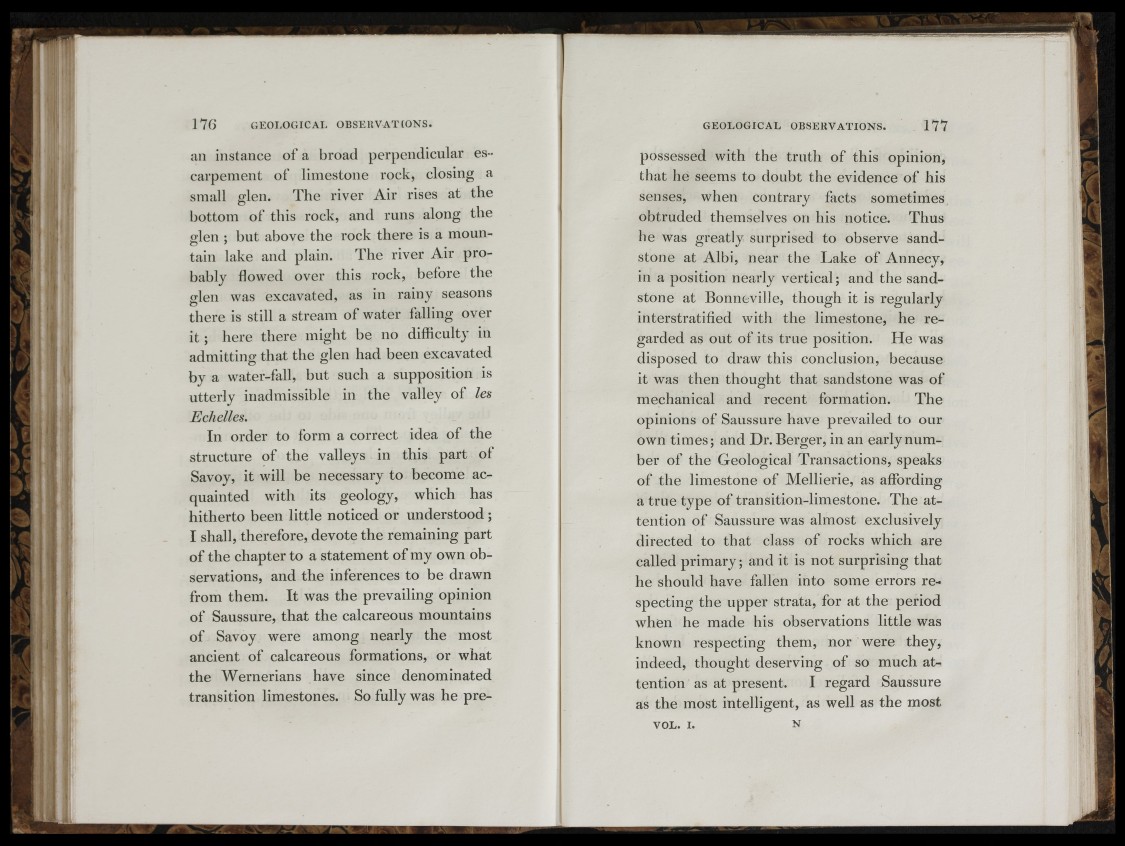
an instance of a broad perpendicular escarpement
of limestone rock, closing a
small fflen. The river O Air rises at the
bottom of this rock, and runs along the
glen ; but above the rock there is a mountain
lake and plain. The river Air probably
flowed over this rock, before the
glen was excavated, as in rainy seasons
there is still a stream of water falling over
i t ; here there might be no difficulty in
admitting that the glen had been excavated
by a water-fall, but such a supposition is
utterly inadmissible in the valley of les
Echelles.
In order to form a correct idea of the
structure of the valleys in this part of
Savoy, it will be necessary to become acquainted
with its geology, which has
hitherto been little noticed or understood;
I shall, therefore, devote the remaining part
of the chapter to a statement of my own observations,
and the inferences to be drawn
from them. It was the prevailing opinion
of Saussure, that the calcareous mountains
of Savoy were among nearly the most
ancient of calcareous formations, or what
the Wernerians have since denominated
transition limestones. So fully was he prepossessed
with the truth of this opinion,
that he seems to doubt the evidence of his
senses, when contrary facts sometimes
obtruded themselves on his notice. Thus
be was greatly surprised to observe sandstone
at Albi, near the Lake of Annecy,
in a position nearly vertical; and the sandstone
at Bonneville, though it is regularly
interstratified with the limestone, he regarded
as out of its true position. He was
disposed to draw this conclusion, because
it was then thought that sandstone was of
mechanical and recent formation. The
opinions of Saussure have prevailed to our
own times; and Dr. Berger, in an early number
of the Geological Transactions, speaks
of the limestone of Mellierie, as affording
a true type of transition-limestone. The attention
of Saussure was almost exclusively
directed to that class of rocks which are
called primary; and it is not surprising that
he should have fallen into some errors respecting
the upper strata, for at the period
when he made his observations little was
known respecting them, nor were they,
indeed, thought deserving of so much attention
as at present. I regard Saussure
as the most intelligeut, as well as the most